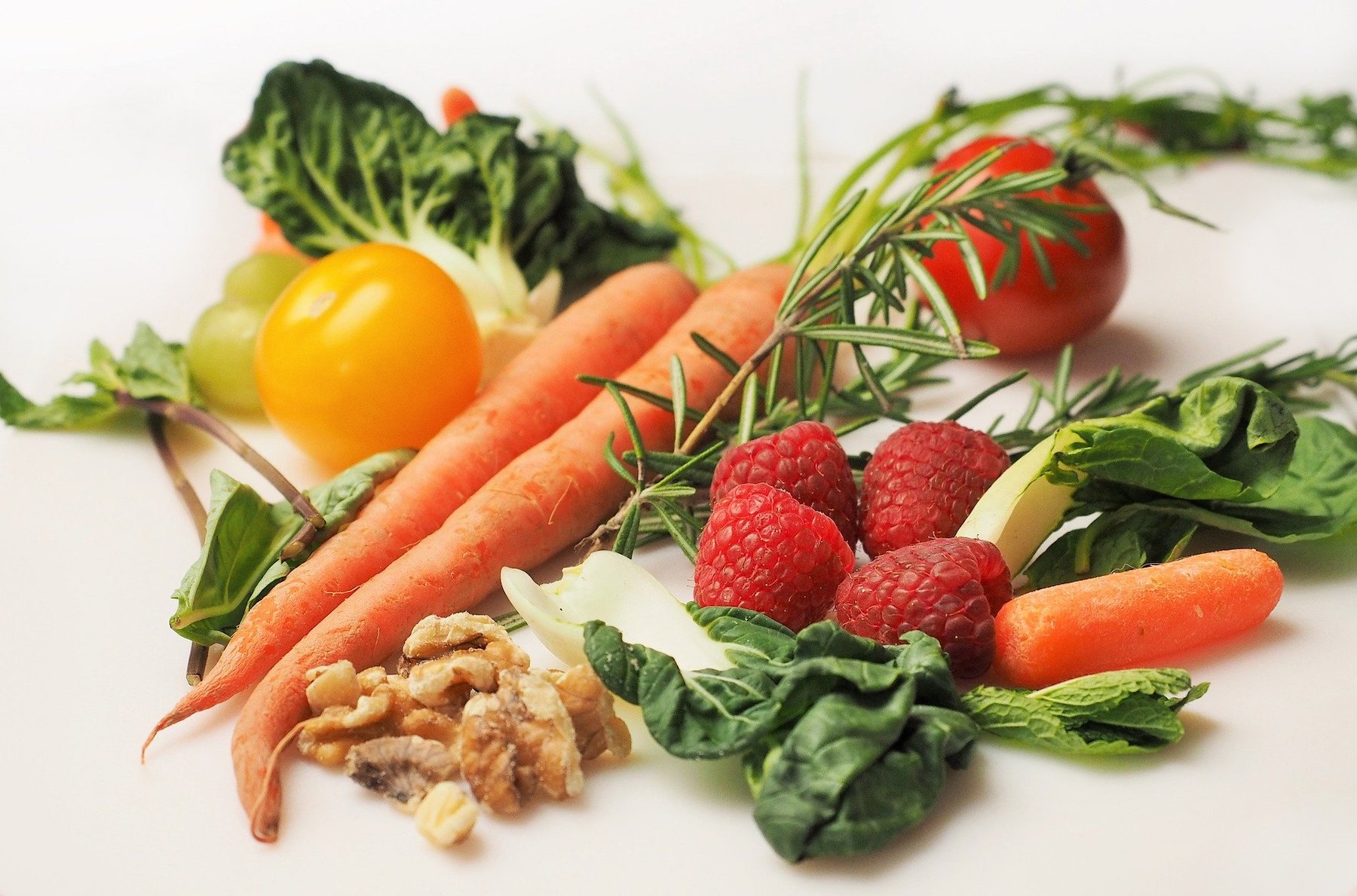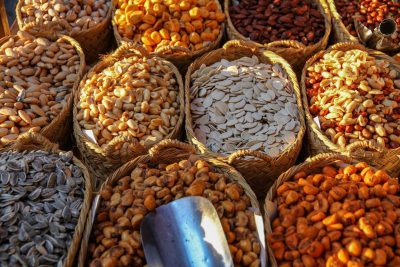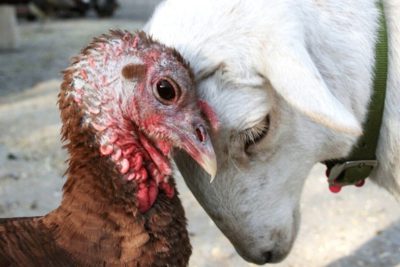It is obvious that what we eat has an effect on our physical health but it can also have an effect on our mental health. And why wouldn’t it? Our brain and its chemicals need nutrients, too! By feeding them well, we treat them right, and our mental health is likely to improve as a result.
What Is Depression?
Depression causes feelings of sadness and / or a loss of interest in the activities we once enjoyed. It can lead to various emotional and physical issues, and it may impact a person’s ability to function at work and at home.
Depression could be caused by underlying biochemical or psychological issues or there might be a trigger for it, such as a bereavement, the loss of a job, or the break-up of a relationship.
Link Between Diet And Depression
There is much yet to understand about depression, but it is clear that what we eat can impact our mood and mental health.
First, ensuring the body gets the right nutrients to function optimally is essential. Without it, we may struggle to synthesize sufficient serotonin, the chemical that regulates moods and is known as ‘the happy chemical’. Plus, eating well is an act of self-care, and when we make the time and effort to be kind to ourselves, mental health often improves.
Research suggests that eating too much sugar, processed meat, fried foods and high-fat dairy products could be associated with anxiety and depression. Studies are also starting to reveal the close connection between our gut biome and our brains and we are coming to understand just how vital a healthy gut is for our mental wellbeing.

Can Diet Have An Effect On Depression?
Absolutely. Nutrition can play a key role in the onset as well as severity and duration of depression. There have been plenty of studies looking at the role of nutrition on our mental health.
In 2017, for example, one Australian study found that the symptoms of people with moderate-to-severe depression significantly improved when they received nutritional advisory sessions and ate a healthier diet for 12 weeks.
Which Comes First? Poor Diet Or Depression?
It’s clear that a poor diet can cause physical effects that impact our brains and moods so you might think a poor diet leads to depression, and you would be right. But being depressed also makes it less likely that we will take care of ourselves, and that means we are more likely to eat unhealthy foods. So, if you think depression comes first, you would also be right! In reality, either can come first, but whichever it is, taking the time and effort to eat healthier foods can help us get back on track.
Foods To Help Fight Depression
So, aside from the general advice to “eat healthy”, what exactly should we be focusing on?

Antioxidants
Free radicals are unstable molecules that ‘steal’ electrons from a stable molecule, thereby setting off a chain reaction that can cause irreversible damage to cells. Our bodies generate free radicals naturally, and it’s not unhealthy to have some in our systems but too many can overwhelm the body’s normal defences. Free radicals are linked to several diseases including some that affect the brain, including Alzheimer’s disease and Parkinson’s disease. There is growing evidence that this may also be associated with the development of neuropsychiatric disorders, such as depression and anxiety.
The best way to combat free radicals and the oxidative stress they cause is through eating foods that are rich in antioxidants. That is: beta-carotene (broccoli, cantaloupe, carrots, pumpkin, spinach, peaches and sweet potato); vitamin C (blueberries, kiwi fruits, oranges, bell peppers, strawberries and tomatoes); and vitamin E (nuts, seeds, avocado, vegetable oils and wheatgerm).
B Vitamins
According to a study reported in Neuropsychobiology, supplementation of nine vitamins, 10 times in excess of the normal recommended dietary allowance for 12 months, improved mood in both men and women. This mood improvement was particularly associated with increased vitamin B2 and B6.
Clinical trials have also indicated that vitamin B12 delays the onset of dementia if it is given at a precise time before the onset of the first symptoms.
Omega-3 Fatty Acids
Depression is less common in nations where high levels of omega-3 fats are consumed and so researchers have focused their efforts on the efficacy of treating depression with this fatty acid. There are three main omega-3 fatty acids and two of them – EPA and DHA – are thought to have the most potential to benefit people with mood disorders. The third fatty acid – ALA – is converted into these two acids in the body, so it is imperative we get a good supply of ALA in our diets. To do that, we should eat plenty of chia, flax and hemp seeds, walnuts, Brussels sprouts, edamame and beans.
Probiotics
You know how we said the brain and guts are connected and that having a healthy gut is important for brain health? Probiotics are live bacteria and yeasts thought to help restore the natural balance of bacteria in the gut. Some studies are finding links between taking probiotics and the easing of depression symptoms. Probiotic foods include tempeh, sauerkraut, kimchi, miso, kombucha and pickles.
Protein
Many of the neurotransmitters in the brain – the body’s chemical messengers – are made from amino acids, the building blocks of proteins. Dopamine, for example, is made from the amino acid tyrosine, and serotonin is made from the tryptophan. A lack of either could lead to low mood and even aggression. Tyrosine is found in tofu, white beans, seeds, wild rice, wheatgerm, sweet potatoes, spinach, green peas, sweetcorn, okra and avocados. Tryptophan is found in soybeans, wheatgerm, sesame seeds, tahini, flaxseed, and nuts.
Selenium
Selenium is an essential trace element that is vital for the proper functioning of the brain and nervous system. Research has not been fully consistent although overall selenium deficiency seems to correlate with depression symptoms. Boosting selenium through foods is easy – it is found in Brazil nuts, whole grains, sunflower seeds, baked beans, mushrooms, oatmeal, spinach, lentils, cashews and bananas.
Vitamin D
In 2019, researchers conducted an analysis of four trials involving 948 people, and found the vitamin was able to positively affect outcomes of depression. Vitamin D is known as the sunshine vitamin, as the body can make it after exposure to the sun. In cooler climes, in winter and for those who do not go outside regularly, it is essential that sufficient is taken through diet (mushrooms are a good source, and plant milks are often fortified with it) or via supplementation.
Zinc
A link between zinc and depression was first suggested in the1980s and since then, it has been extensively studied. A meta-analysis of 17 studies found that blood zinc concentrations were lower in depressed subjects than in control subjects. Giving zinc to depressed subjects has been shown to improve moods.
People eating a wholefood plant-based diet should get plenty of zinc. It is found in beans, lentils, walnuts, cashew nuts, seeds, wholemeal bread, quinoa and dark chocolate.
Caffeine
Some studies – but not all – have indicated a link between caffeine and a reduced rate of depression, while another study suggested that it’s not caffeine that’s the hero, but the coffee itself. Be careful though as too much caffeine can trigger anxiety, and inhibit sleep, which can have a detrimental effect on our mood and on our physical health.
Foods That May Make You Feel Depressed
Some foods are known to increase the risk of depression, and we feel sure that none of these will come as a huge shock to you. The foods that we know are not good for our bodies are also not good for our brains and mental health.

Alcohol
Alcohol use can be both a symptom of depression and a trigger for it. Turning to alcohol to elevate mood is likely only to worsen depression in the long-run but the bigger connection actually occurs the other way round: drinking alcohol excessively is more likely to cause major depression than be a symptom of it.
Alcohol affects our brain chemistry and it makes antidepressants less effective. Alcohol and depression are a troubling pair, but the good news is when we treat one, we treat the other.
Fried Foods
A 2016 Japanese study found a correlation between frequency of consuming fried foods and a lower resilience to depression. Anything that is cooked with hydrogenated oils and contains trans fats could potentially contribute to depression. And it’s not just fried foods that are the problem – it’s thought that any source of trans fats can have an impact.
Processed Oils
As well as avoiding trans fats, which are commonly found in processed foods, it is best to avoid safflower and corn oil, too. These are high in omega-6 which competes with omega-3 in the body, and we know we need more of that.
Refined Foods
Our bodies love wholefoods – whole grains that have all the good bits left in. When we eat refined foods, we are filling up without getting the nutrients we need. To get the antioxidants, selenium and zinc needed for optimal brain health, we need to eat natural foods, not foods so refined and processed, all the goodness has been taken out.
Simple Carbohydrates And Sugar
Complex carbohydrates are important for our mental health, but simple carbohydrates – sugars – have a detrimental effect. Research indicates that people with very high intake are more likely to experience symptoms of depression. One study at the University of Kansas found that consuming too much sugar can trigger numerous inflammatory, metabolic, and neurobiological processes linked to depression.
Can A Junk Food Diet Increase Your Risk Of Depression?
When we load up on fatty fried foods, refined grains, processed meals, sugar and alcohol, we are increasing the risk of suffering mentally as well as physically. This will not come as news to anyone. We all know eating a diet rich in fruits, vegetables, whole grains and legumes is going to be better than eating burgers, fried chicken and candies.

Can Going Vegan Help Mental Health?
Being vegan can certainly help mental health so long as a balanced whole food diet is adopted. The great news for those wishing to avoid the animal suffering and environmental degradation inherent in animal products is the wealth of convenience foods now available. But just because a donut is vegan does not make it healthy. These are foods we should enjoy in moderation, and if we can find meals we love that are rich in vegetables, beans, nuts, fruits, whole grains, salads, herbs, and spices, we’ll be doing our bodies and our minds a great service.
Conclusion
There is no magic bullet for anxiety or depression, and we’d urge anyone struggling with their mental health to seek professional medical advice. But alongside that, improving diet through adopting a wholefood plant-based diet could really make a difference.
Let us help you! Our Vegan Starter Kit is freely available, along with our Health & Nutrition Guide and our favorite plant-based recipes to get you started.



